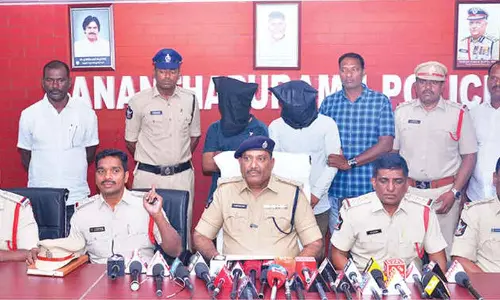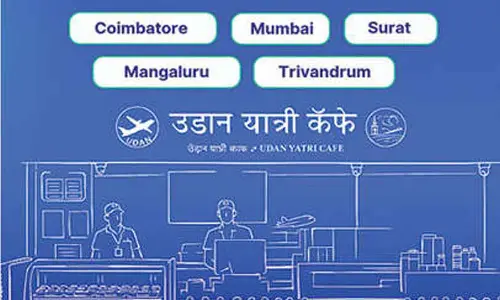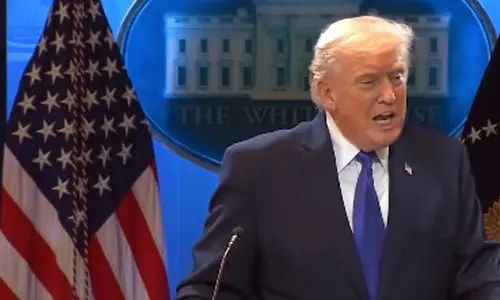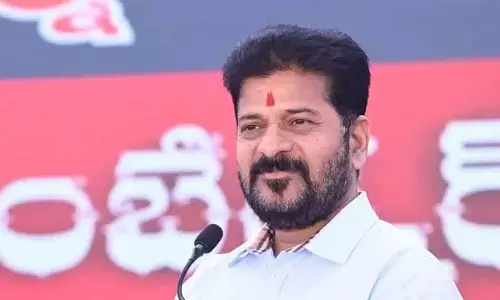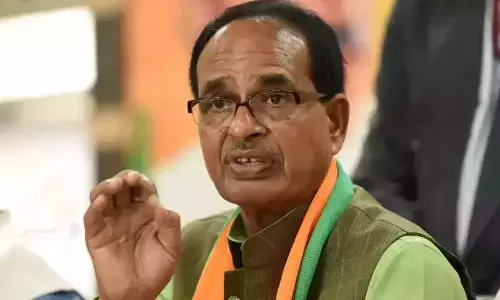Integrity poverty India’s main peril
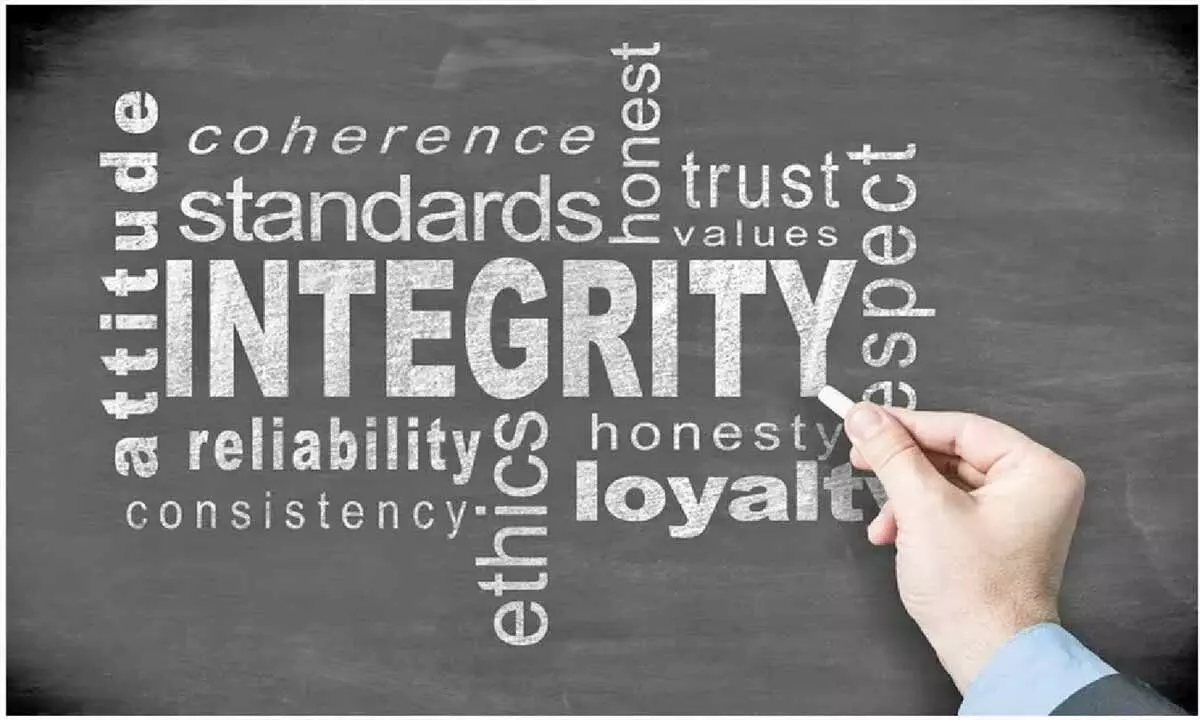
Despiteall the economic feel-good news, the Indian society is beset with many ills and inadequacies, the connecting thread of them all being the erosion integri-ty.
The almost visceral belief is that integrity is desirable but not doable in today’s India. To counter this perception, we have to fight it mainly on two fronts: social and spiritual. Our role models ought to be those worthy of emulation, not celebrity status or wealth. In the Indian context, spirituality is intertwined with dharma, which Annie Besant said is the word India gave to the world. India’s future is linked to this word. We must bring it back to the centre-stage and begin a national conversation on how to restore and integrate its core principles into practical pub-lic life, mindful that it is not limited to Hinduism but embraces all Indic religions and even Islam
Despiteall the economic feel-good news, the Indian society is beset with many ills and inadequacies, the connecting thread of them all being the erosion integri-ty. Integrity is essential not only for individuals but also for society; devoid of it is like a symphony out of tune. Moreso for a democracy; it is virtual absence that has made India a distrustful, dysfunctional democracy. And opened the flood-gates of moral turpitude and to all kinds of undesirable traits like duplicity, decep-tion, and ethical callousness and indifference to other’s suffering.
Integrity has a myriad of meanings and abundance of definitions. Aristotle called it as “the spring of excellence in living.” Confucius said, “The strength of a na-tion derives from the integrity of the home.” C S Lewis characterised it as “doing the right thing, even when no one is watching.” Francis Bacon said that “It is not what we profess, but what we practise that gives us integrity.” Broadly, it is the quality of being unselfish, upright, honest, righteous and whole-hearted in what-ever we do. It is to do what one says and is supposed or obligated to do as well as one could. It is to be not only to be true to one’s word but also to one’s own self.
Another dimension that requires attention particularly in the wake of all the talk of the impending AGI (Artificial General Intelligence) is the nexus between integ-rity and intelligence has become critical. In generic terms, one could say that ‘In-tegrity without intelligence is weak and useless, and intelligence without integrity is dangerous and dreadful.” The almost certain union of man minus integrity and super-intelligent machines could well mean the end of human beings as he now is. That underscores the importance and urgency of combating the virus what we may call IDD (Integrity-deficit disorder) that has infected our mindset.
As far as India is concerned, the peril is more. For intelligence-wise, Indians rank very high but integrity-wise very low. That is why despite having some very bright and skilled people in all walks of life such as politics, academia, civil ser-vice, science, technology, fine arts, the nation is not able to reap the full benefit from its intelligence-plentitude. It is because of its integrity-poverty. What is baf-fling is that India, above all else, from time immemorial was known as the land of dharma and dharmaic concepts like Akhandata and Sheelam include many at-tributes similar to those contained in integrity. What it means is that our integrity woes stem from our dharmic decay.
Tell-tale signs are all over. It has affected the political class, intelligentsia, bureau-cracy, business, law enforcement and possibly even defence services. It manifests as lack of principled convictions or inability to take a stand-up stand or to feel moral outrage. Without any red lines not to cross, and expediency playing first fiddle, almost everyone is up for grabs some way or the other. People lying about age or marks or degrees or caste or income is not viewed as morally wrong. Cheating is so commonplace and reflexive that we don’t even think cheating is cheating. It starts from even elementary school exams and spares nothing and no one. Copying from others – like cheating on taxes – isn’t just common; even something to be proud of. Rampant exam cheating in India has forced some states to enact new “anti-copying laws’. Fake universities and institutions abound. Officially there are 277 fake engineering colleges in India. It is said that over one in six of India's medical schools have been accused of cheating and fake medical schools in India produce fake doctors.
Pursuit of three ‘Ps’
In our daily life, India’s integrity deficiency has compromised people’s pursuit of the three Ps – pleasure, power and profit. Acquiring and enjoying are scripturally sanctioned. Hinduism, for instance, posits that a human being, although essential-ly a spiritual being, can still seek artha and kama, (two of the four called purushrathaas i.e., material prosperity and sensual pleasure, provided the means mobilised are dharmic. That they are not now and that is the reason why their pursuit is so socially predatory.
As for the first ‘P’, pleasure-seeking, we must note that while in much of the rest of the world pleasure is synonymous with hedonism and materialism, in India the two are reinforced by escapism of various sorts. For the poor, it is from their grinding drudgery and misery. For the middle class, it is a blend of keeping up with the Joneses and competitive consumerism. For the elite, it is to flaunt their obscene ostentation and to mimic the lifestyles of their counterparts in affluent societies.
In regard to the second ‘P’, power, it is the ultimate prize everyone is after. Being powerful is innate to human nature and in its own right is not necessarily harm-ful. But if people, destitute of basic integrity, be it in governance or business or society at large, come to occupy positions of power the harm they can do is ex-pansive and exponential. That which is most potent and insidious is political power. One of our veteran politicians, Jaswant Singh (‘What ails India’) de-scribed the situation this way: “the single greatest factor of damage to the integrity of the Indian nation has been the Indian politician”. What has it made more dam-aging is the coupling of political power with another corruptive influence on in-tegrity – big money. In tandem, the two have played havoc with the integrity of the mindset of mainstream Indian society. Power and integrity are now, barring rare cases, mutually exclusive.
The third and last of the ‘Ps’, pursuit of profit, has become the most ruthless. To a point such a pursuit is not necessarily unethical. It is profiteering, the act of mak-ing excessive profits through fraudulent ways, that is a social evil. That is what has happened in India. Lying and cheating have infested nearly all economic ac-tivity, social intercourse, public services and purchase and sale. Politicians want to profit from positions of power; people want to profit from elections. With the na-tional obsession on increase in GDP, which makes no distinction between pro-duction of pollutant or baby food, armament or air-bag, profiteering was given the Nelson’s eye.
Finally
There can be little question that integrity is at the lowest ebb in extant India. That is why the Indian society is so unequal, unjust, fractured and fractious and no one feels any disquiet. Integrity, it is important to note, is also a ‘negative virtue’– it acts a restraint on what is undesirable or what we shouldn’t do by making us feel bad. What most of us think, feel, say or do are often out of sync. There is almost nothing of us or about us that we will not shed or sell for one or another of the three ‘Ps’. Qualities like honesty, righteousness and what Buddhism calls ‘Met-ta’, or loving kindness i.e., an empathetic concern for other’s happiness, are in a deep coma. The almost visceral belief is that integrity is desirable but not doable in today’s India. To counter this perception, we have to fight it mainly on two fronts: social and spiritual. Socially, our entire value system and norms for ac-claim, reward and opprobrium must create a friendly ambience. Our role models ought to be those worthy of emulation, not celebrity status or wealth. The awe-some power of visual media should be channeled to glorify goodness, not gory violence. In the Indian context, spirituality is intertwined with dharma, which Annie Besant said is the word India gave to the world. India’s future is linked to this word. We must bring it back to the centre-stage and begin a national conver-sation on how to restore and integrate its core principles into practical public life, mindful that it is not limited to Hinduism but embraces all Indic religions and even Islam.
(Writer is a retired IAS officer of 1958 batch)


